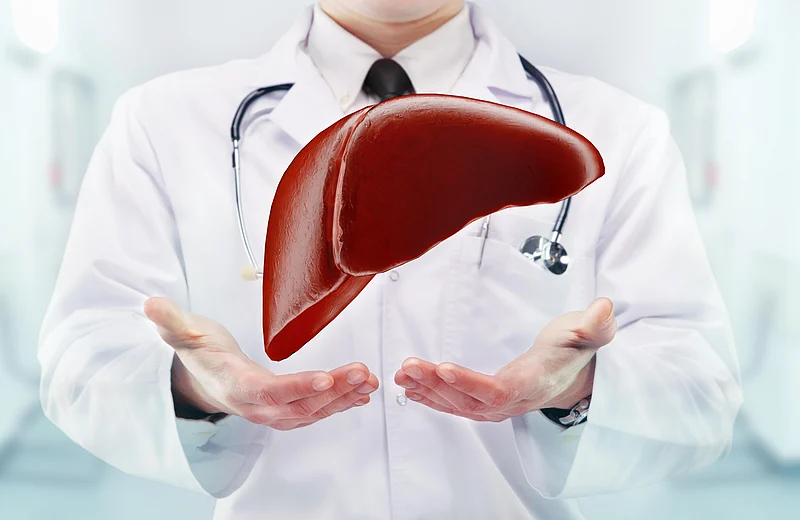Get Healthy!

- Posted December 1, 2022
Signs That COVID Infection Might Harm the Liver
COVID-19 may harm the liver, a small study suggests.
The virus appears to increase liver stiffness, a sign of potential long-term injury, but it's too early to tell if that portends serious liver disease, the researchers said.
"COVID infections have been observed to cause inflammation and damage to a number of different organ systems like the brain, the intestines and the liver," said researcher Dr. Theodore Pierce, an abdominal radiologist at Massachusetts General Hospital in Boston.
Stiffness is an indicator of liver damage, such as fibrosis, a buildup of scar tissue. Scarring can diminish healthy liver tissue and, over time, cause it to stop functioning normally. Fibrosis can lead to liver cancer and liver failure.
Pierce said it is too soon to know whether the liver damage caused by COVID-19 will have lasting effects.
"We haven't followed people for a long period of time because COVID has only been around for a few years, so we just don't know what will happen to people," he said. "In theory, it could progress to a more severe form of liver injury. The other possibility is that if you accumulate liver injury from COVID-19 and from other sources, [it] could be additive."
For example, fatty liver disease, which affects about 100 million Americans, is becoming the most common cause of end-stage liver disease, Pierce said.
"It's not known if the injury from COVID could be additive in people who have other reasons to develop end-stage liver disease," he explained.
The researchers plan to follow COVID-19 patients to see if they develop serious liver disease. They also want to find out if COVID is the cause of liver stiffness. For this, they plan to dig deeper into their data.
Finally, they hope to learn how the severity of a COVID-19 infection affects the liver and if damage can occur in patients who have tested positive for COVID but have no symptoms.
"You would expect that worse COVID-19 infection would lead to more liver damage, and so if we weren't able to observe that relationship, that would be more evidence to suggest that that COVID-19 is, in fact, causing liver damage, and not just that it's some weird coincidence," Pierce said.
For the study, his team compared liver stiffness in 31 men and women who had COVID-19 with 50 people without the virus. After controlling for age, sex and time from COVID diagnosis, the researchers found that COVID-19 patients had significantly greater liver stiffness than the control group.
Some people who didn't have COVID-19 also had stiffened livers, the investigators found. That's a finding they can't explain.
Pierce doesn't think patients who have had COVID-19 should worry about potential liver damage.
"Our results are very preliminary, and I don't think people need to panic because of our results," he said. "I don't think we can base clinical decisions on the findings of our study."
An expert who was not involved with the new research agreed.
"I don't think the study is large enough to draw conclusions, including whether the results are persistent, but this does raise concerns that COVID infections, at least in the age group studied, could affect the liver," said Dr. Marc Siegel, a clinical professor of medicine at NYU Langone Medical Center in New York City. "This is in keeping with what we already know about the multisystem effects of COVID."
The findings were presented Thursday at a meeting of the Radiological Society of North America, in Chicago and online. Research presented at medical meetings should be considered preliminary until published in a peer-reviewed journal.
More information
For more on COVID-19, head to the U.S. Centers for Disease Control and Prevention.
SOURCES: Theodore Pierce, MD, abdominal radiologist, Massachusetts General Hospital, Boston; Marc Siegel, MD, clinical professor, medicine, NYU Langone Medical Center, New York City; presentation, Radiological Society of North America meeting, Chicago and online, Dec. 1, 2022






